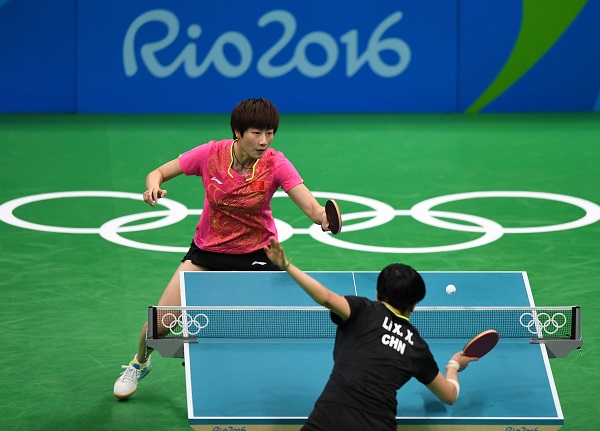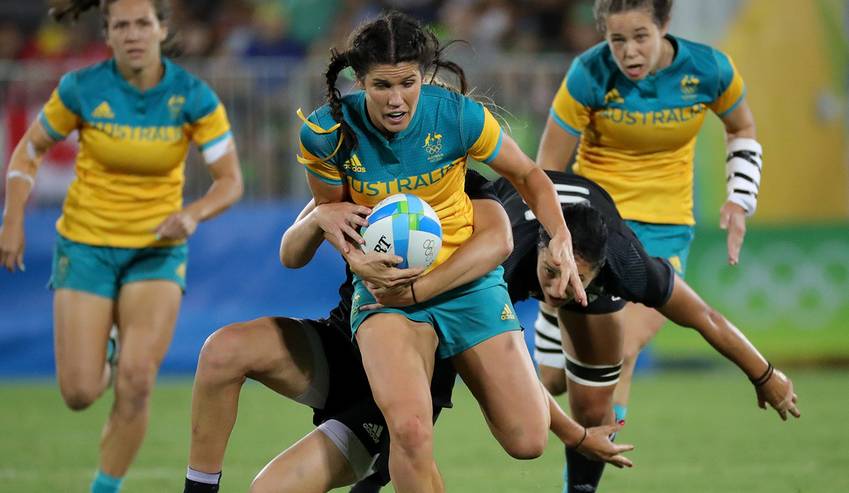
Sometimes you need to step outside the bubble that normally envelopes you to illuminate the fundamentals of whatever your specialist subject happens to be.
I was chatting to a friend last week when suddenly the question arose: today, in 2017, what are the Olympic Games for?
It is the most basic of all questions on the undertaking I spend much of my time writing about and yet I was struck mute, speechless, lost for an answer.
Put on the spot, I would have found it far easier to articulate a half-convincing mission statement for the Paralympic Games. But the Olympics themselves? I was tongue-tied.
And then the conversation moved on.
I have been pondering this troubling episode ever since and, with the luxury of time, have come up with seven possible answers.
The trouble is, it seems to me only two of them hold water; I will save those until last.
OK then, what are the Olympic Games for?
1. They are the planet’s supreme sporting pinnacle.
Well, up to a point, but almost every sport has its own World Championship event now, which was certainly not the case in the late 19th century when the good Baron conceived his big idea. Do we really need both? Why?
2. They help to promote a healthier lifestyle for young people.
This loomed quite large, I think I am right in saying, in de Coubertin’s thinking, but we have devised endless means for achieving this end since then, and still they struggle to compete against the almighty hand-held device or laptop.
In any case, is the lifestyle of the elite athlete in the 21st century really all that healthy?

3. They have the ability to make the cities that host them better places to live.
This argument would have been easier to stand up in the 1990s – and if I were the International Olympic Committee (IOC) today, I would be preparing to throw the kitchen sink at the 25th anniversary of Barcelona 1992.
But it is much harder to support this point convincingly in an environment in which Olympic-related infrastructure spend has to be conducted almost by stealth.
4. They bring the athletes of the world together.
I do not have the statistical evidence to support this, but it seems to me that the personal schedules of top performers are now so crowded and packed with competing demands on their time that they are often left with scant opportunity to linger in the Village, shoot the breeze with competitors from other sports and other nations, and soak up the Olympic atmosphere once their event is over. That is if they are even lodged at the Village.
In any case, in a society in which various forms of electronic communication are both free and ubiquitous, it seems to me that the likes of Skype and Facebook probably fulfil this function a lot more efficiently and regularly than the Olympics.
5. They show humanity at its best.
Perhaps in theory, but this argument is mighty hard to sustain at a time when so many recent medals are being lost over breaches of anti-doping regulations.

6. They raise money to help less commercial sports, as well as sports and athletes in poorer countries.
Yes, they do – lots of it. This is thanks to the astonishing escalation in the value of broadcasting and sponsorship rights to the Games we have witnessed since the 1960s, and more particularly, the 1980s.
7. They give politicians around the world a stage on which to bask in reflected glory, to stoke patriotic/nationalistic feeling and to manufacture national heroes.
Yes, they do – hopefully, but not necessarily in a positive way that is respectful of rivals and acknowledges that sporting prowess is important not in its own right, but as a metaphor for what human beings are capable of when they set their minds to something.
The Olympics are particularly good at this because they produce so many, and such a diversity of, winners, along with other inspiring stories.
Those that are most powerful – and this seems to me critical – resonate far beyond the countries which the athletes in question are representing.
There you are then; it has taken me a few days, but I have eventually figured out an answer – two even – to my friend’s question.
This now leaves what journalists in press conferences call “a supplementary” hanging: is the justification provided by points six and seven enough?
By David Owen
Republished with permission from insidethegames.biz.